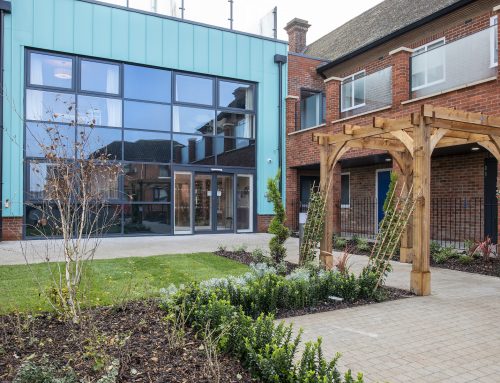Care homes face closure amidst the cost-of-living crisis
The widespread fallout of the pandemic has been sorely felt across international markets since 2020 — with isolation protocols and international trade restrictions making it difficult for businesses to continue as usual. The war in Ukraine has exacerbated these issues, contributing to rising inflation and increasingly unaffordable energy bills.
Care home operators have seen central heating and electricity prices shoot up, prompting many to worry about making ends meet. Costs have been even higher in old properties with outdated and inefficient insulation and appliances — exposing the lack of financial robustness in many existing senior living facilities.
With a large portion of care homes significantly underfunded and struggling to overcome post-pandemic challenges such as managing staff absence, these institutions are particularly vulnerable to the consequences of economic uncertainty.
As a result, it is more important than ever to replenish the stock within the senior living and care home market — before too many outdated facilities close their doors for good.
A high price to pay for energy
With many residents frail and some requiring round-the-clock care or struggling with post-infection respiratory disorders, warm living spaces and hot meals are just two of the basic amenities that senior living accommodations cannot sacrifice.
Advice from authorities to limit energy consumption to counteract rising energy bills cannot apply to these institutions. Care homes cannot cut corners to save money without putting residents at risk — leaving them exposed to escalating prices with limited resources. And as the population ages rapidly, the inefficiency of most care homes is a problem that will persist even after fuel prices start to come back down.
Thanks to advances in healthcare, people are living longer — and consequently, experts predict some drastic changes to population demographics will occur over the next few decades. By 2050, the population of over-60s is expected to double, whilst the number of people aged 80 or above could triple by the same year.
In the meantime, some care homes could be facing closure very soon, as the director of Hawthorns Lodge, Justin Russi, explained in a recent BBC article. Without government support, he said, the company will have ‘no choice’ but to shut down. This example is an unfortunate but unsurprising reality for many care homes, given that some, like Bowfell House Care Home in Urmston, Greater Manchester, face energy bill increases of as much as 900%.
So, a long-term solution is needed if we are to keep our elderly community safe in the coming months and years.
Calls for government support
Care home operators have called for government intervention since the cost-of-living crisis began impacting utility prices. Fortunately, some support has been offered to businesses and organisations struggling to keep up with rising energy bills.
Prime Minister Liz Truss recently gestured towards dedicated support businesses — including senior living residences — in the Government Energy Bill Relief Scheme, which will offer discounts to anyone on a non-domestic fixed contract agreed on or after 1 April 2022. The scheme will come into effect this October, and discounts will be applied to energy usage between then and March 2023.
Whilst this does offer much-needed reassurance to care home managers and residents, this is only a temporary fix to a huge problem as we transition from fossil fuels to more renewable energy sources.
The need for elderly care facilities will rise sharply in the next decade, but property development in the senior living and care home market is not keeping pace with this demand. As such, there are many attractive opportunities for real estate investors to expand their portfolios into this alternative sector.
Rynda Healthcare is a dedicated real estate investment platform for care home operators and developers. Our proactive approach to asset management means we are well-positioned to identify and facilitate attractive investments and support the development of high-quality, energy-efficient senior living solutions that reduce bills and improve residents’ quality of life.
To find out how Rynda Healthcare can help you pursue lucrative investment opportunities in the senior living and care home market, contact the team via this form or call +44 (0) 20 3709 9875.





